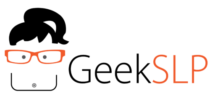
My cousin recently spent the night at our house while touring colleges in Texas. She’s set to attend one this fall, but when I asked her about her major, she told me she’s still undecided. At just seventeen, she’s already facing the monumental task of choosing a career path—a decision we’ve all had to grapple with. I made a similar choice at 16 and, looking back, I can’t believe how well things turned out for me. This got me pondering life choices, especially after reading a Facebook post from an SLP expressing deep regret about her career choice.
In her post, the SLP mentioned she would never recommend her profession to family members and hoped her daughter would choose a different path. Her frustrations were rooted in the U.S. healthcare system, Medicaid cuts, and the state of public education, which employs a majority of speech therapists.
This post has been on my mind for a week, prompting me to share my thoughts on my blog. I’ve experienced my share of disappointments in the SLP profession. Back in 2009, working for a school district, I felt stressed, overworked as the sole bilingual staff, and undervalued. I even faced challenges like being denied leave to attend the ASHA convention and struggled with a daunting caseload and endless paperwork. My creativity and drive eventually led me to rejuvenate my career by developing apps, allowing me to become the SLP I never knew I wanted to be. I consider myself fortunate.
Our field is incredibly diverse, offering settings and age groups to suit all preferences. Job security also tends to be high, as demand for SLPs continues to grow. However, one topic seldom discussed is the ‘invisible tasks’—the aspects of the job we never anticipated doing, overshadowing the parts we love.
Other professions, like teaching and policing, face similar dilemmas. Many are inspired by personal experiences with teachers or Hollywood portrayals, only to find the reality far different. For example, my husband, a former Dallas ISD teacher, spent countless off-the-clock hours cleaning his classroom. The janitors might sweep the floors and empty the trash, but they won’t tackle the gum and graffiti on desks or the disarray left by 35 students at the end of the day.

Countless hours they will have to spend cleaning the classroom. The janitors would sweep the floors and empty the trash but don’t expect that they’ll clean the trash that the students stuffed into the bottoms of the desks (ewww is that chicken bones?), or wipe off the graffiti or sugary drool scribbled on the desks (Do they make cleanser for that). They won’t straighten up the mess that thirty five students packed into a small room can make in ten seconds before the bell rings: no that’s on the teacher.
The pointless meetings. Where the administration is excited about a new Acronym that revolutionizes teaching (but is really just repackaging of the same status quo), or reading slides to the whole staff for two hours every week when you probably could have communicated the same thing in a paragraph long email.
Extra tasks mounted on with no extra pay: We need you to do metal detector duty every week, search the kids bags to make sure they didn’t bring a gun (by the way the metal detectors were never turned on), take to the streets for the weekend to see if we can find the kids who dropped out of high school, call every parent on your roster to see if you can get a few of them to show up to parent teacher night. Call every parent at least twice before ever making a refferal for behavior problems…
Mountains of paperwork: matching test scores to seating charts , making lesson plans that match nonsensical state objectives, write new nonsensical state objectives on the board everyday and translate them so that a student can understand them. If more than 20% of your class fails you will need to come up with an enormous binder worth of evidence that you did your best for them to pass and what you’ll do to make sure no one fails. Endless, tourtous enternity of hours of grading, (1 essay with feedback 15 minutes multiplied by 220 students who are reading and writing at a 3rd grade level despite being in highschool = endless pain)
We just need you to be every single one of your students, parent, teacher, therapist, and other tasks totally unrelated to the act of teaching a child you know the visible part that you saw as a student; the only part they show on TV.
By contrast look at another proffession depicted often on TV that almost all people have personal experience with: Doctors.
Their profession seems to be much closer to what the students going into it probably expected. They see their patients they write prescriptions, they look at lab results and plenty of other interesting things but all directly related to helping their patients.
Are they bogged down with paperwork? Probably not; they have a secretary or nurse filling that out. Doesn’t seem that they are personally making the calls for the referrals. I myself have never received a call from any of my own doctors. Are they personally writing papers to get reimbursement for medicaid? It seems that they have staff doing that as well. Yeah I’m sure there is still plenty of tasks they do that is out of what we visibly see as patients or as viewers watching a doctor TV show, but it’s just not near the same level of “hidden unrelated tasks” like directing hospital traffic ( that would be kinda cool actually). Somehow their time is much more valued to make them direct hospital traffic. Medical doctors are well portrayed in movies, and TV shows. Their long hours and hard work is not a surprise for them.
In fact I am sure that every profession has its side tasks that makes us feel as if we are not really doing what we are meant to do, and I get the feeling that the amount of time SLPs are spending doing what they feel is not part of their professionals tasks is getting bigger by the day. Many SLPs spend an hour of their day directing school traffic, others spend time filling up reimbursement paperwork, calling parents to schedule appointments for evaluations, and other things. Yes, someone’s gotta direct traffic, pickup the kids from the bus, and do all small and big things that keep the school running, but many of these invisible tasks dumped into SLPs is not what we thought we would be doing on a daily basis when we signed up for that profession. That’s not what inspired us to become SLPs. We all want to be inspired to continue pursuing our life’s dream which is to help people communicate.
Which got me thinking, is this just poor administration of school funds? If funding for schools was better prioritized could we find away to stop SLPs and teachers from being a dumping ground of non-educational tasks . The bottom line is that while SLPs are being taken away from doing what they were meant to do, which is to help children, they are also loosing that original magic that comes with doing what you love. I do not claim to have the answer to all “invisible tasks” dumped on teachers and speech therapists, however I do know that maybe we ought to ask them! I don’t recall ever being asked for solutions to the daily problems I faced in the school districts, do you?
I love being able to create products that have helped millions of children and adults everywhere you can imagine in the world. I was able to direct my drive and love for the communication sciences to make my dream of what I do every day as an SLP. It does not mean that I don’t have “invisible tasks” myself, however those invisible tasks I do on a daily basis do help me continue to do what I love doing. All people have invisible tasks, the question here is are these tasks directly related to your professional career? Are they taking away the joy and pride of being an SLP? Are young people joining the profession aware of these additional tasks that will consume their daily hours or will they say later: “That’s not what I signed up for”.
How about you? Do you have invisible tasks? How do you cope with the ones you don’t like to do? I would love to hear from you.
Barbara Fernandes, M.S CCC-SLP



